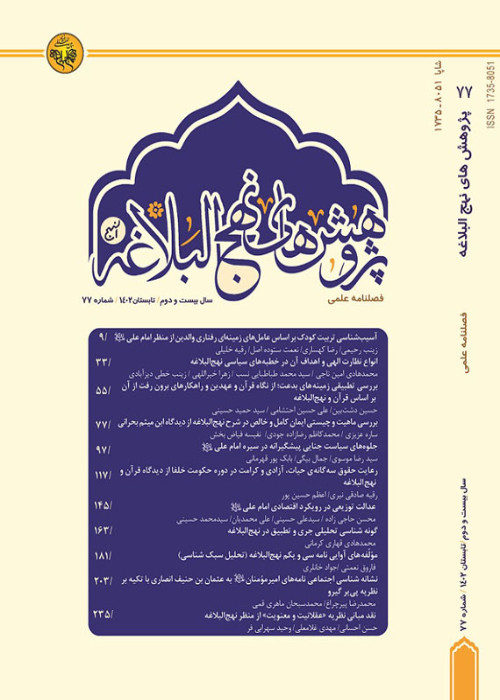Analyzing Selection of Equivalents in Shahidi's Translation of Qasea Sermon based on Textual Criticism
Selecting appropriate equivalence in translation is an essential and sensitive process that requires the translator's high precision and mastery of both source and target languages. Seyyed Jafar Shahidi's translation of the Nahj Al-Balaghah, according to many experts, is one of the best translations of this book so far. This translation was introduced as the selected book of the year in 1990, and many scientific and literary societies have praised it. In this research, the authors chose the translation of the Qasea sermon from this book, compared it with its Arabic text based on the text-oriented approach, and analyzed it on two levels of lexical and textual context. The findings of this research show that, despite many efforts that have been made in the translation of this precious book, and despite all the beauty and elegance used in it, it seems that Shahidi in selecting equals for referential meaning as well as the contextual and textual meaning of some words has not been very precise.
- حق عضویت دریافتی صرف حمایت از نشریات عضو و نگهداری، تکمیل و توسعه مگیران میشود.
- پرداخت حق اشتراک و دانلود مقالات اجازه بازنشر آن در سایر رسانههای چاپی و دیجیتال را به کاربر نمیدهد.



